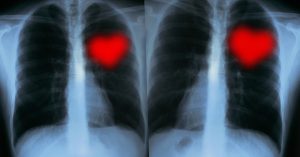How Diabetes Leads to Heart Disease
Over 30 million Americans suffered from diabetes in 2015. Of those 30 million, roughly seven million went undiagnosed. This is especially alarming considering the connection between diabetes and heart disease. Below, we explore this connection and offer suggestions for those looking to control their blood glucose levels and prevent dangerous health conditions. If you suffer from diabetes or suspect that you do, it’s imperative that you take the initiative to better your heart health by consulting the best interventional cardiologist in Tampa, Dr. Sachin Diwadkar, FACC, FASE, of Ascent Cardiology Group.
The Results of High Blood Glucose Levels
Simply put, diabetes occurs when your blood has high blood glucose levels — too much sugar. If left untreated, high blood glucose will damage blood vessels and nerves, leading to heart disease. Your chances of developing heart disease only grow so long as you have diabetes. For those with diabetes or pre-diabetes, heart disease can take the form of the following:
• Coronary Heart Disease
• Heart Failure
• Diabetic Cardiomyopathy
In addition to heart disease, diabetes can lead to heart failure, stroke, and peripheral arterial disease. While it may seem like nothing more than a preventable inconvenience, diabetes is a serious condition that can lead to life-threatening complications if not kept in check.
• Coronary Heart Disease
• Heart Failure
• Diabetic Cardiomyopathy
In addition to heart disease, diabetes can lead to heart failure, stroke, and peripheral arterial disease. While it may seem like nothing more than a preventable inconvenience, diabetes is a serious condition that can lead to life-threatening complications if not kept in check.
Causes of Diabetes
Whether type 1 or type 2 diabetes, it can be difficult to pinpoint the exact cause. It’s a common misconception that poor diet alone causes diabetes. Type 1 diabetes is believed to be caused by genetics and environmental factors. While there is a strong connection between obesity and type 2 diabetes, genetic and environmental factors are also connected and the ultimate cause remains alone.
If you are suffering or believe you are suffering from diabetes, there’s nothing for you to be ashamed of. Diabetes is a common disease that afflicts millions of Americans. More importantly, it’s a preventable and treatable condition.
If you are suffering or believe you are suffering from diabetes, there’s nothing for you to be ashamed of. Diabetes is a common disease that afflicts millions of Americans. More importantly, it’s a preventable and treatable condition.
Symptoms of Diabetes
The symptoms for both type 1 and type 2 diabetes include exhaustion, hunger, frequent urination, increased thirst, dry mouth and skin, and blurred vision. However, you may also experience yeast infections, difficulty healing from cuts and sores, and nerve damage resulting in pain or numbness in your feet if you’ve had type 2 diabetes for some time.
If your diabetes has lead to heart disease, you may experience severe symptoms or no symptoms at all. Those that silently suffer from heart disease do so at the risk of suffering a larger complication later in life, such as a heart attack.
If your diabetes has lead to heart disease, you may experience severe symptoms or no symptoms at all. Those that silently suffer from heart disease do so at the risk of suffering a larger complication later in life, such as a heart attack.
Prevention and Treatment Options
Those that are worried about diabetes and their heart health can begin to make lifestyle changes to lower their chances of developing heart disease. The National Institute of Diabetes and Digestive and Kidney Diseases (NIDDK) recommends that you eat well, stop smoking, be active, take prescribed medications as directed to by a doctor, and reduce stress. These are excellent recommendations; however, if your diabetes has progressed to a more serious condition, it’s imperative that you consult a cardiologist.
At Ascent Cardiology Group, we specialize in interventional cardiology in Tampa. With the use of advanced, minimally invasive techniques, such as radial artery catheterization, we can diagnose and effectively treat your condition. Put your health first by trusting a doctor that has dedicated his life to improving the lives of patients who struggle with heart disease. Trust Dr. Diwadkar and the team of cardiologists at Ascent Cardiology Group.
At Ascent Cardiology Group, we specialize in interventional cardiology in Tampa. With the use of advanced, minimally invasive techniques, such as radial artery catheterization, we can diagnose and effectively treat your condition. Put your health first by trusting a doctor that has dedicated his life to improving the lives of patients who struggle with heart disease. Trust Dr. Diwadkar and the team of cardiologists at Ascent Cardiology Group.
To consult the best interventional cardiologist in Tampa, from Ascent Cardiology Group, please request an appointment today.
Disclaimer: The contents of this website are for general educational purposes only. All content and media on the Ascent Cardiology Group website does not constitute professional medical advice nor is the information intended to replace the services of Ascent Cardiology Group or other qualified medical professionals. If you believe you are having a medical emergency, call 911 immediately.
The content, views, and opinions communicated on this website do not represent the views of Ascent Cardiology Group. Reliance on any information provided by this website is solely at your own risk. Although this website contains links to other medical websites, this is strictly for informational purposes. Ascent Cardiology Group is not responsible nor do they approve of the content featured on any third party linked websites referenced on this website.
The content, views, and opinions communicated on this website do not represent the views of Ascent Cardiology Group. Reliance on any information provided by this website is solely at your own risk. Although this website contains links to other medical websites, this is strictly for informational purposes. Ascent Cardiology Group is not responsible nor do they approve of the content featured on any third party linked websites referenced on this website.
More Resources

Stress and Heart Disease: What You Can Do to Improve Your Heart Health
Working long hours, filling up free time, and taking on additional responsibilities is a way of life for Type A

What is Nuclear Cardiology?
Nuclear cardiology is a subspeciality of general cardiology that involves the use of radioactive substances and advanced medical imaging modalities

Coronary Heart Disease: What Is It and How Is It Treated?
In addition to being the most common type of heart disease, coronary heart disease is the deadliest. In fact, it’s